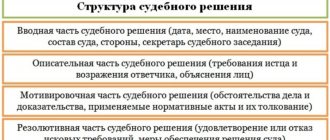Article 231 of the Code of Criminal Procedure of the Russian Federation. Appointment of a court hearing (current version)
1. In our opinion, making a decision to summon persons to a court hearing according to the lists submitted by the parties (clause 4, part 2 of this article) is mandatory for the court. In the general procedure for preparing for a court hearing, the court does not have the right, at its discretion, to exclude certain evidence from the list on the grounds of its inadmissibility, since if such a need arises, a preliminary hearing should be scheduled. It is also unlawful to exclude persons from the list of persons declared by a party for reasons of unreliability of the testimony that they may give in court proceedings, or the irrelevance of this testimony to the circumstances of the case, since the judge does not have the right to go into the assessment of the evidence that the parties intend to present. Otherwise, it could mean a pre-determination of the question of the guilt of the accused and a departure from the adversarial nature of the process, due to which the court only creates the necessary conditions for the parties to fulfill their procedural duties and exercise the rights granted to them (Part 3 of Article 15). Within the meaning of this article and based on the general principles of the adversarial process, the court at this stage does not have the right, on its own initiative, without petitions from the parties, to call new witnesses to the court hearing, order an examination, or demand documents and other evidence. Otherwise, it would mean that the court assumes part of the accusatory or defensive function, which is prohibited by law (Part 3 of Article 15). At the same time, it seems that the court, if necessary, has the right, on its own initiative, to summon an interpreter to the court hearing, if a request for this has not been made by the parties.
2. The Constitutional Court of the Russian Federation indicated that “the norm of paragraph 6 of part two of Article 231 of the Code of Criminal Procedure of the Russian Federation - in its constitutional and legal meaning in the system of current criminal procedural regulation - does not imply that when preparing for a court hearing, the court has the right to decide to leave it unchanged a preventive measure in the form of detention and thereby extend this preventive measure without listening to the opinion of the accused on this issue and without examining his arguments. When the court makes an appropriate decision, all the requirements established by Articles 108, 109 and 255 of the Code of Criminal Procedure of the Russian Federation must be met, including the participation in the judicial consideration of this issue of the accused and his defense attorney (if he is involved in the case), which is ensured in relation to other situations provided for by law at the stage of preparation for the court hearing by holding a preliminary hearing in the manner established by Chapter 34 of the Code of Criminal Procedure of the Russian Federation.”
———————————
See: Determination of the Constitutional Court of the Russian Federation of April 8, 2004 N 132-O “On the complaint of citizen Anatoly Vadimovich Gorsky about the violation of his constitutional rights by paragraph 6 of part two of Article 231 of the Criminal Procedure Code of the Russian Federation” // RG. 06/09/2004. N 120.
3. The indication of paragraph 6 of Part 2 of this article that the court, in the decision to schedule a court hearing, resolves the issue of the preventive measure “except for cases of choosing a preventive measure in the form of house arrest or detention” should not be understood in that sense that the judge does not have the right at this stage to choose the named measures of restraint for the accused. The fact is that, according to Part 10 of Art. 108, the court must make a separate decision on choosing a preventive measure - detention. This statement is also true for house arrest, which, by virtue of Part 2 of Art. 107 is also assigned in the manner prescribed by Art. 108. A preventive measure in the form of bail is also chosen only by a court decision, as a general rule - in a court hearing.
4. When the prosecutor transfers a criminal case to the court, the preventive measure chosen during the preliminary investigation does not cease to have effect and may continue to be applied until the expiration of the period for which it was established by the relevant court decision. The judge, having received a criminal case for his proceedings, is obliged to check whether the previously established period of detention has expired or not, whether the existence of factual circumstances, with reference to which the decision was made to take the person into custody, is confirmed, and whether these circumstances retain their significance as grounds for extending the period of detention.
———————————
See: Resolution of the Constitutional Court of the Russian Federation of March 22, 2005 N 4-P “In the case of checking the constitutionality of a number of provisions of the Code of Criminal Procedure of the Russian Federation, regulating the procedure and timing of the use of detention as a preventive measure at the stages of criminal proceedings following the end of the preliminary investigation and sending a criminal case to court, in connection with complaints from a number of citizens” // RG. 04/01/2005. N 66.
Comment source:
Ed. A.V. Smirnova “COMMENTARY ON THE CRIMINAL PROCEDURE CODE OF THE RUSSIAN FEDERATION” (ARTICLE BY ARTICLE), 5th edition
SMIRNOV A.V., KALINOVSKY K.B., 2009
Mobile court hearings: lawlessness or business as usual?
Due to well-known events, we were asked all day yesterday: can a court hearing take place not in the courthouse, but, for example, on the territory of the police department? Is this not a violation of the law? We talk about such a concept as an “exit court hearing” and in what cases it can be organized.
The term “exit court session” appears in arbitration procedural legislation. According to paragraph 5 of part 1 of Article 135 of the Arbitration Procedure Code of the Russian Federation, when preparing a case for trial, the judge considers the possibility of holding a mobile court hearing .
This concept does not appear anywhere else in the law. In civil proceedings, for example, it is absent. However, part 1 of Article 75 of the Code of Civil Procedure states that material evidence subject to rapid deterioration is immediately inspected and examined by the court at its location or in another place determined by the court. That is, there is at least one reason when, in a civil case, procedural actions can be performed by the court outside the court walls - if there is an urgent need to examine evidence that cannot be delivered to the court .
As for the Code of Criminal Procedure (this is what the questions we received were about), it also does not say anything about the possibility of the court to schedule mobile court hearings, but there is also no direct prohibition - not a single word that the hearing must certainly be held in the courthouse, you you won't find it. Paragraph 1 of Article 231 of the Code of Criminal Procedure states that when scheduling a court hearing, the judge resolves the issue of the place and time of the hearing. That is, the place of the court hearing is not predetermined by law, but is determined by the court . At the same time, of course, this place must provide the technical possibility of holding a meeting - for example, there must be a place for a secretary and a separate room for a deliberation room if the court needs to retire to it.
The possibility of holding mobile court hearings in civil and criminal cases is expressly allowed by the Supreme Court (Resolution of the Plenum of the Supreme Court of 02/07/1967 N 35 (as amended on 02/06/2007)). However, the Supreme Court notes that the courts need to take into account the social significance and relevance of the case, the nature of the civil dispute or the crime committed, the identity of the defendant, plaintiff, defendant and other important circumstances , so that cases “that are generally inappropriate to be heard in them” are not brought to field hearings. .
General procedure for scheduling a court hearing
Mandatory actions to prepare for the court hearing include: studying the written materials of the criminal case by the judge alone without the participation of the parties and clarifying the issues specified in Art. 228 Code of Criminal Procedure, namely:
1) whether the criminal case is within the jurisdiction of this court;
2) whether copies of the indictment (indictment, indictment) were handed over;
3) whether the preventive measure is subject to election, cancellation or change, whether the period of house arrest or the period of detention is subject to extension;
4) whether there are any petitions and complaints from the parties that need to be resolved;
5) whether measures have been taken to ensure compensation for damage caused by the crime and possible confiscation of property;
6) whether the bodies of inquiry and preliminary investigation have complied with the requirements of the procedural law, and whether there are any circumstances that impede or preclude consideration of the case by the court;
7) whether there are grounds for holding a preliminary hearing.
The listed issues must be resolved in relation to each accused.
Having examined the case, the judge, without holding a court hearing, no later than 30 days from the date the case was received by the court, and if the accused is kept in custody - no later than 14 days, makes in the form of a resolution one of the three decisions established by Part 1 of Art. . 227 Code of Criminal Procedure. The judge's decision must indicate: the type of decision, the date and place of its adoption, the name of the court, the surname and initials of the judge, as well as the grounds for the decision and its essence.
If it is established that the case was sent to the court in violation of the rules on jurisdiction and for this reason cannot be considered by this court, the judge, by his decision, sends the case, according to jurisdiction, to the appropriate judicial body, whose competence is the consideration of this case and which will subsequently decide all issues related to the preparation of trial.
If, when sending the case to the court, the rules of jurisdiction are observed and there are no grounds for holding a preliminary hearing in the case, provided for in Art. 229 of the Code of Criminal Procedure, the judge is obliged to schedule a court hearing. In accordance with Art. 231 of the Code of Criminal Procedure, when scheduling a court hearing without a preliminary hearing, the judge resolves a set of procedural and organizational issues in a single decision:
1) schedule a court hearing indicating the last name, first name and patronymic of each accused and the qualifications of the crime charged to him;
2) determines the place, date and time of the court hearing, taking into account the fact that, according to Art. 233 of the Code of Criminal Procedure, consideration of a criminal case in a court session must begin no earlier than 7 days from the date of delivery to the accused of a copy of the indictment, indictment or indictment, but no later than 14 days (in cases considered by the court with the participation of jurors - no later than 30 days) from the date of the decision to schedule a court hearing;
3) establishes in what composition of the court (single or collective) and in what mode (in an open or closed court session) the case will be considered;
4) appoints a defense attorney in cases where the accused requests this, as well as in cases of mandatory participation of a defense attorney in the proceedings (clauses 2–7, part 1, article 51 of the Code of Criminal Procedure);
5) based on the lists submitted by the parties, determines the circle of persons to be summoned to the court hearing, which may, on its own initiative, add persons necessary for the consideration of the case (for example, call for questioning an expert who gave an opinion during the preliminary investigation);
6) establishes or cancels a preventive measure for each of the accused during the trial. If it is necessary to select a preventive measure for the accused in the form of bail, house arrest or detention, or to extend the period of house arrest or detention, the judge must hold a court hearing with the participation of the parties in order to resolve this issue in the manner prescribed by Art. 108 of the Code of Criminal Procedure, notifying them about this three days before the start of the meeting, or resolve it in a preliminary hearing, if the latter is appointed on the grounds provided for in the Code of Criminal Procedure.
At the request of the victim, civil plaintiff or their representatives or the prosecutor, when scheduling a trial, the judge also has the right to make a decision to take measures to ensure compensation for damage caused by the crime, or possible confiscation of property, the execution of which is entrusted to bailiffs (Article 230 of the Code of Criminal Procedure) .
Copies of the judge’s decision on the direction of the case according to jurisdiction or on the appointment of a court hearing in a criminal case are sent to the parties to the case, while the parties, in order to ensure their proper preparation for the trial, must be notified of the place, date and time of the court hearing no later than 5 days before it starts. When organizing a trial, the judge gives orders to summon the persons specified in the resolution and takes other measures to prepare for the trial, which, in particular, include: sending a request to the appropriate legal entity to provide the accused with an appointed defense attorney; measures to bring persons in custody to court; involving a translator, teacher or psychologist in the case; order to prepare the courtroom; instructions to the bailiff service to ensure security measures and create conditions for their application; resolving issues related to the presence of media representatives in the courtroom, providing the parties, at their request, with the opportunity to additionally familiarize themselves with the materials of the criminal case (Part 3 of Article 227 of the Code of Criminal Procedure).
Specific preparatory and security actions, such as notifying and summoning persons, sending requests, demands, etc., are regulated not by procedural rules, but by the rules of judicial record keeping (for example, the Instructions for judicial record keeping in a district court, approved by order of the Judicial Department under the Supreme Court RF dated April 29, 2003 No. 36) and are mostly carried out at the direction of the judge by court staff. A person is summoned to a court hearing by a summons, which is handed to him against a receipt or transmitted via communication means (for example, via SMS messages).
After a court hearing has been scheduled, the defendant loses the right to file a petition to consider the case by a jury or a panel of three judges, as well as to conduct a preliminary hearing, but has the right to appeal the decision to schedule a court hearing in terms of decisions on the preventive measure and the composition of the court in an appeal procedure to a higher court. Other parties to the case have the same right.
Grounds and procedure for holding a preliminary hearing
A preliminary hearing in a criminal case is intended to consider issues related to the removal of obstacles to the consideration of the case by the court and the creation of the necessary conditions for trial. Resolution of these issues requires the participation of the parties and can only be carried out in a special court hearing. A preliminary hearing is scheduled by the judge after examining the case on his own initiative or at the request of a party, submitted no later than 3 days from the date the accused receives a copy of the indictment or indictment, about which a ruling is made.
According to Part 2 of Art. 229 of the Code of Criminal Procedure, the grounds for holding a preliminary hearing are:
1) a party’s request to exclude evidence from the case;
2) the existence of grounds for returning the case to the prosecutor in cases provided for in Art. 237 Code of Criminal Procedure;
3) existence of grounds for suspension or termination of the criminal case;
4) a party’s request to conduct a trial in absentia (in the absence of the accused) in exceptional cases provided for in Part 5 of Art. 247 Code of Criminal Procedure;
5) a petition from the accused to have his case considered by a court with the participation of a jury;
6) the presence of a sentence that has not entered into legal force, providing for the conditional condemnation of a person against whom a criminal case has been filed in court for a crime previously committed by him;
7) existence of grounds for separating a criminal case.
The preliminary hearing is conducted in compliance with the general rules and requirements of Chapter. 33, 35 and 36 of the Code of Criminal Procedure by a judge alone in a closed court session with the participation of the parties, who are notified of the summons to court at least three days before the date of the preliminary hearing (Article 234 of the Code of Criminal Procedure). The participation of the accused in the preliminary hearing is mandatory, except for cases when he requests a hearing to be held in his absence, and when the preliminary hearing decides on the issue of trial in absentia in accordance with Part 5 of Art. 247 Code of Criminal Procedure. In the cases specified in Part 1 of Art. 51 of the Code of Criminal Procedure, and when the preliminary hearing is held in the absence of the accused, the participation of a defense lawyer is mandatory. The failure of other timely notified participants in the proceedings does not prevent the preliminary hearing from being held.
During the preliminary hearing, the court determines the circumstances that served as the basis for holding the preliminary hearing; are checked for the admissibility of evidence that the parties requested to be excluded; petitions may be filed to request additional evidence or items that must be satisfied if these evidence and items are relevant to the case. A party’s request to exclude evidence on the grounds that it was obtained in violation of the requirements of the Code of Criminal Procedure is subject to unconditional satisfaction, unless the opposing party objects to this. In case of objections, the court verifies the good quality of such evidence by reading out the protocols of investigative actions and other materials of the case, studying and attaching to the case additional documents presented by the interested party, and interrogating the persons participating in the investigative action, as a result of which the disputed evidence was obtained. In this case, the burden of refuting the defense’s arguments about the inadmissibility of the contested evidence lies with the prosecutor. When deciding to exclude evidence as inadmissible, the court sets it out in a decision made following the results of the preliminary hearing. Evidence excluded by the court loses legal force, cannot be examined and used during the trial (for example, its existence cannot be disclosed to the jury), and cannot be used as the basis for a verdict or other court decision. Subsequently, when considering a criminal case on the merits, the court, at the request of the party, has the right to reconsider the issue of the admissibility of the same evidence. The progress and results of the preliminary hearing are recorded in the minutes.
Decisions made by the judge based on the results of the preliminary hearing
According to Part 1 of Art. 236 of the Code of Criminal Procedure, based on the results of the preliminary hearing, the judge makes one of the following decisions in the form of a ruling.




